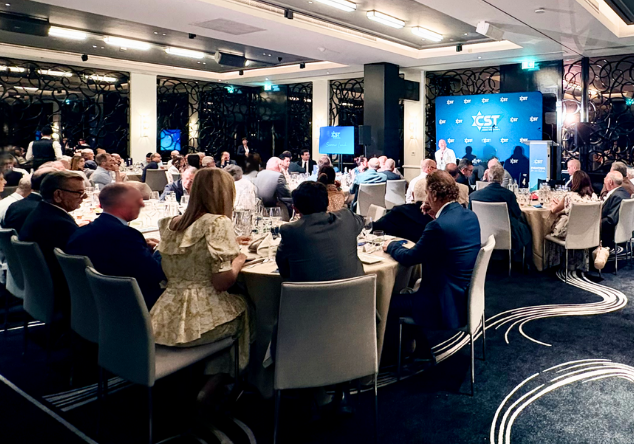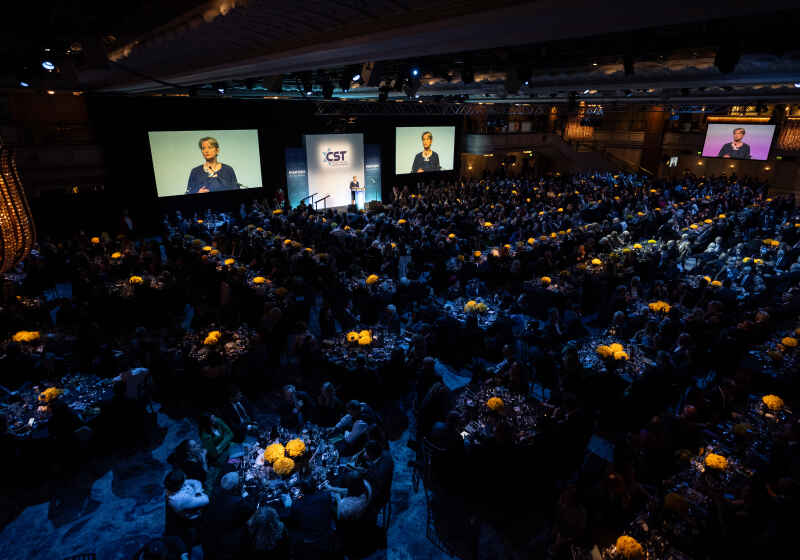CST Blog
Imitation is not always flattery
13 January 2010
The lie that Israel is Nazi Germany and Gaza the Warsaw Ghetto straddles the line between anti-Israel discourse and antisemitic agitation. It satisfies the urge of some anti-Zionists to attack the moral argument that the Holocaust provides for the creation of Israel, while retaining their self-respect as anti-fascists. It generates bigotry towards all Jews who do not actively disassociate themselves from Israel, for nobody is more worthy of hatred than Nazis and their sympathisers. And it became commonplace on the demonstrations and in public discourse in Britain during last year's war in Gaza.
The effort to brand Israel with the mark of Nazism has led some people - who certainly consider themselves to be anti-fascists - to find it impossible to take part in mainstream Holocaust commemorations. Last year, Holocaust memorial events in Spain and Sweden were cancelled because the organisers felt it impossible to hold them so soon after Gaza. Here in Britain, the Muslim Council of Britain revived their boycott of the main Holocaust Memorial Day event. There is no sign of any self-reflection on the parts of these would-be anti-racists that their political journey has taken them to a place where they cannot stomach the commemoration of the genocide of European Jewry. Others have gone a step further and hijacked the language and imagery of Holocaust commemoration for their own anti-Israel campaigns. In the latest example of this imitation of Holocaust remembrance, today sees the start of "Palestine Memorial Week", in a direct echo of the Holocaust Memorial Week that it immediately precedes:
Palestine Memorial week will be lunched [sic] with the first anniversary of the indiscriminate war against the besieged people of Gaza approaching, a number of organizations based in the UK and Europe are preparing for a week of events and actions. The events which will last one week will remember the victims killed in more than 30 massacres like Dair Yasin, Qibya and Sabra-Shatlia.
In commemoration of the victims of Gaza and also in remembrance of six decades of brutality against the Palestinians, The Palestinian Return Centre (PRC), Palestinian Forum in the UK, European Campaign to End Siege on Gaza, Islamic forum of Europe (IFE), Federation of Student Islamic Societies (FOSIS), Muslim Association of Britain (MAB), Islamic Human Rights Commission in Britain (IHRC), Russell Tribunal, Student Council Goldsmith University and Action Palestine will be holding a number of events between 13th to 19th of January 2010.
The PRC, which appears to be the leading organisation in this coalition, is close to and supportive of Hamas. It and many of the other organisations involved do not wish for a peace treaty between Israel and a Palestinian state: they hope to see Israel disappear entirely. Thus the Holocaust, which provided the moral energy for the creation of the State of Israel, is being used to generate the moral energy for its destruction.
The growing popularity of this obscene equation was addressed by Denis MacShane in his introduction to EISCA's Understanding and Addressing the 'Nazi Card':
Given this phenomenon, this report confronts one of the most pressing questions in the analysis of 21st century antisemitism: why is such stress placed on making an association between the eliminationist ideology of Nazism and Jews who either support Israel, refuse to denounce it or fail to reject Zionism?
There is an entire dictionary of alternative condemnatory nouns, adjectives and metaphors that can be used to critique Israel and its policies since 1967, including its occupation of land won by conquest or presiding over people who do not wish to live under Israeli control.
Critics of Israel are entitled to express their views as trenchantly as they wish. But when particular words are used they bring particular responsibilities. The notion that any comparison with Nazism and the Holocaust can be honestly made constitutes a systematic attempt to denigrate Jews, and to straightjacket them into the category of citizens without legitimacy or the right to respect. The Nazi comparison scratches deep wounds that are not yet healed something that should be blindly obvious to anyone.
Those who claim rights for people who have been displaced do not make their case well by calling their opponents Nazis. The voice of Palestinians is heard worldwide. They have the attention of the media, supporters in Parliament and in the press, and the opportunity to take their cause to the Israeli judiciary, often winning against government policy. To say they live in the same conditions as Jews in the Warsaw ghetto for whom the only way out was a gas chamber is to distort all meaning in language. It is a travesty of history and inflicts great hurt.
Nazism was an exterminationist, eliminationist ideology. To draw a comparison between Jews and Hitlers policy of systematic mass murder is a grotesque anti-Jewish and hence antisemitic speech act.
In his novel, Davids Revenge, the German writer Hans Werner Kettenbach portrays a schoolteacher who leads his class of students through German and European history. A scandal ensues when a boy paints a swastika on the set of a school play as a protest. They had been my pupils long enough to know what a swastika means: it is the emblem of terror and inhumanity, writes the German novelist via his character. That is why German law forbids the use of the swastika in the public space.
In Britain, we would not easily allow the promulgation of pre-1939 imagery of the hook-nosed, child-devouring Jew. Most of us would also disparage the classic stereotype of the Jew as perpetual outsider, locked into a global network secretly conspiring to control the world. Despite Britains trademark liberalism and tolerance of free expression, since 1945 a line has been drawn in depicting Jews in the kind of pre-WWII language and imagery that helped shape antisemitism.
Yet it is now considered acceptable by some newspapers, cartoonists and commentators to brand Jews as Nazis and to allow the swastika to be used as an image that stirs up hate against Israel and the Jews, no matter where they may reside. This is modern antisemitism.
It is important and necessary to assert the legitimacy of criticising Israel with all the vocabulary available in the modern political lexicon. But to play the Nazi card is to play an antisemitic card. The hurt it causes Jews is no less when it is played against Israel today than when it was used in its previous incarnations. And this time it is not simply Nazis or neo-Nazi thugs who are playing it.
Since Gaza, it has become increasingly easy to find examples of this discourse, and MacShane is right when he says that it is not neo-Nazi thugs who are doing it. Most recently his fellow MP, George Galloway, managed to combine this most modern idea with a much older libel when he accused Israel of "playing mini-Mengele on Palestinian prisoners in Israeli jails".
Holocaust Denial, Holocaust Inversion, Holocaust Equivalence, Holocaust Trivialisation - all are variations on the same theme of undermining and destroying the moral weight of the Holocaust. A new book, The Abuse of Holocaust Memory: Distortions and Responses, surveys this territory in detail (it includes a chapter written by me, an earlier version of which can be found here). It should not be necessary to attack Holocaust commemoration in this way in order to campaign for Palestinian rights. Pro-Palestinian campaigners should be able to acknowledge the significance of the Holocaust in modern Jewish history, and many can and do. But it seems that increasing numbers of people who should know better are falling into this way of thinking, and are blind to its poison.

Read More

Antisemitic Incidents Report January-June 2025
6 August 2025

CST Summer Lunch 2025
25 June 2025
CST Annual Dinner 2025
26 March 2025
